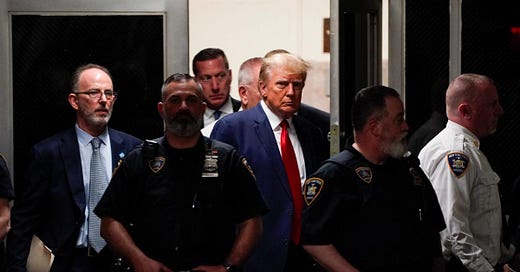A most interesting commentary by Christian Parenti, “Trump’s Real Crime Is Opposing Empire,” appeared on April 7 in Compact, which maintains that the indictment of Trump is part of a war against the former president by the U.S. establishment, and that the reason for said war is Trump’s foreign policy heresies and his disregard for the financial interests of the establishment that are at stake in U.S. imperialist foreign policies.
Parenti is on target in saying that the indictment of Trump distracts from issues that are far more important. And he perhaps is correct in predicting that local prosecutors “eager to make a name for themselves by prosecuting a former president of the United States” will now feel that they have “free rein to criminally investigate and prosecute presidents after they leave office.” For these reasons, “the indictment does real harm to the American body politic.”
Moreover, Parenti makes a good case, citing a number …



